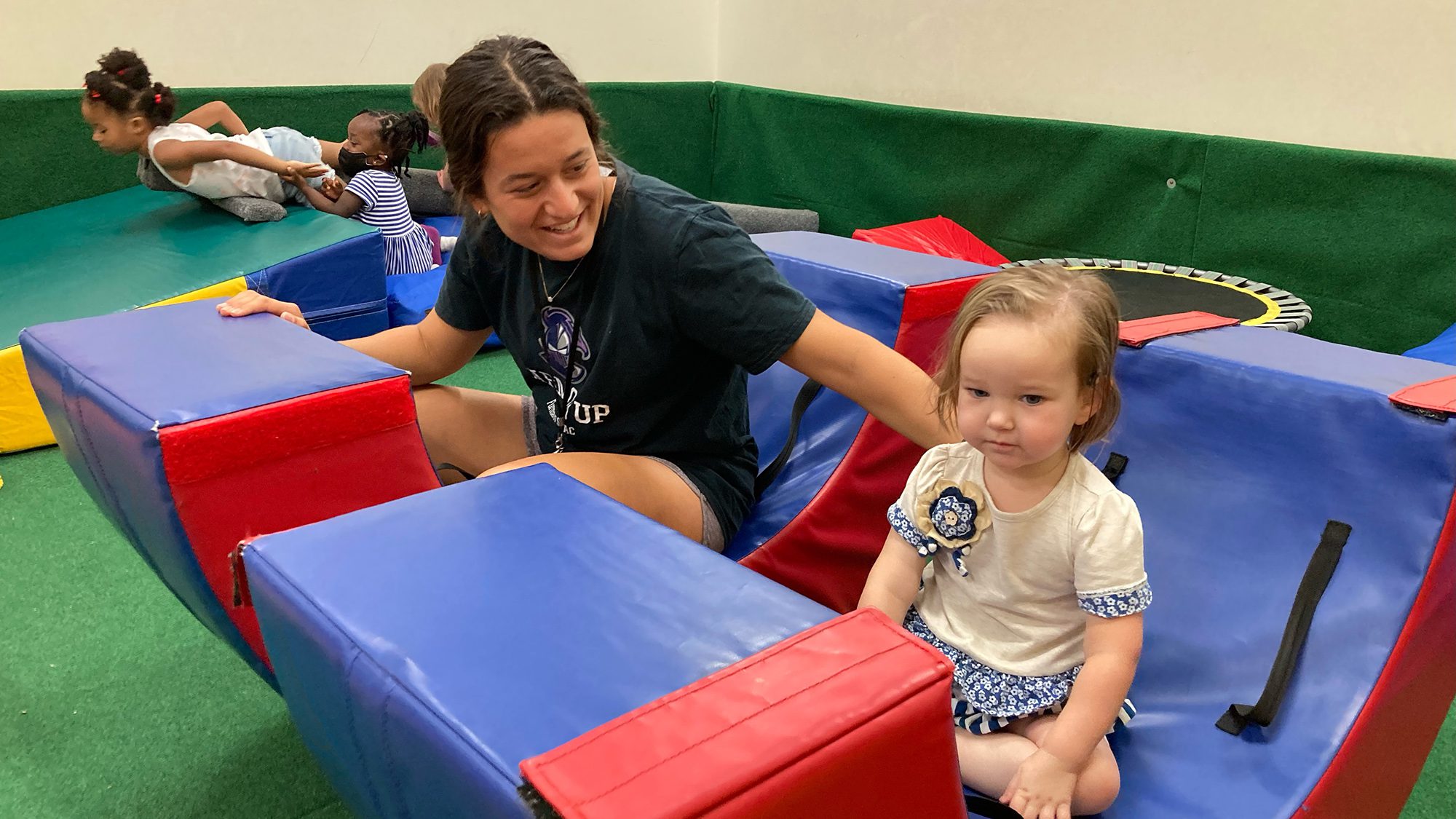Furman senior hopes to keep helping the hard of hearing

Alana Epstein ’23 doesn’t remember getting her first cochlear implant as a 1-year-old, or her second at age 3. But she’s seen the video of the day she was “turned on” – the term audiologists use for activating an implant for the first time.
“It was very overwhelming,” said Epstein, who was born deaf. “In the video, I’m hearing one of the first sounds I heard with the implants, and you could just tell I was looking around, trying to find where the sounds came from. My eyes got really big, and a smile came onto my face.”
She also smiled when she talked about her experiences as a Furman student, double-majoring in health sciences and psychology.
“Furman’s done an awesome job,” she said. “The professors here are just amazing. They’ve all been very accommodating. I feel like I’ve gotten a lot of help here.”
Epstein, who plays midfield on Furman’s women’s lacrosse team, first visited the campus while being recruited as a high school athlete in Marietta, Georgia.
“I wanted to go down and look at the campus, and I loved it,” she said. “And I also knew I wanted to be at a small school, because that’s how I learn better. And I like sitting up front, so I can have easy communication with professors.”
Although Epstein has no experience of hearing “normally,” she knows that the world sounds fundamentally different to her – and others with cochlear implants – than it does to a hearing person, she said. Unlike hearing aids, which receive and amplify sound waves for people who have some ability to hear, cochlear implants process sound waves into electrical impulses that travel directly into the cochlea, the part of the inner ear that transmits sound signals to the brain. The result is a recreation of sound, not an exact reproduction.
“It’s like you guys hearing Siri,” she said, referring to the synthesized speech of the iPhone’s digital assistant. “It’s very computerized.”
Since Epstein got her implants so young, she has had plenty of time to adjust to her new way of hearing. “For me, everything sounds normal, because I don’t know anything different,” she said. “There are nuances I pick up on, like different tones and pitches and modulations. For someone who were to get an implant later, it probably would sound different, but the brain actually adjusts to it.”
Visual cues are also useful for the hard of hearing, Epstein notes. “For me, lip reading is huge,” she said. “I wouldn’t completely rely on it, but when I’m talking to someone, I will look at their lips.”
Epstein has used her last two summer breaks to share her practical experience with students with hearing loss at the Atlanta Speech School. During these summer sessions, she would help 2- and 3-year olds meet challenges such as learning to use their hearing devices or adjusting to a classroom environment.
“It’s awesome,” she said. “I love sharing my story, and I love working with little kids, too. I would show them my implants, and they would be like, ‘Oh my God, I have them, too!’ They would just get so excited just to see someone older wearing them.”
She plans to continue helping children with hearing loss after leaving Furman and getting a graduate degree in audiology, learning the technology that goes into devices like the cochlear implants she received years ago.
“I want to be the person who turns on the patient for the first time,” she said.